Which is more important? Plot or character? To write great fiction, we need both. Plot and characters work together. One arc drives the other much like one cog serves to turn another, thus generating momentum in the overall engine we call “STORY.” Writers have a unique challenge. On one hand we need a rock solid plot and (ironically) the best people to execute this solid plot? Flawed characters.
If we goof up plot? Readers/Audiences get confused or call FOUL. Watch the movie Ouija for what I am talking about *shakes head*.
Goof up characters? No one cares about the plot.
New writers are particularly vulnerable to messing up characters. We drift too far to one end of the spectrum or the other—Super-Duper-Perfect versus Too Dumb to Live—and this can make a story fizzle because there is no way to create true dramatic tension.
This leaves us (the frustrated author) to manufacture conflict and what we end up with is drama’s inbred cousin melodrama.
If characters are too perfect, too goody-goody and too well-adjusted? If they always make noble, good and professional decisions? Snooze fest.
Again. Bad decisions make great fiction.
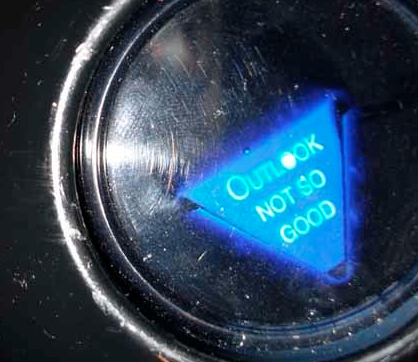 Of course, the other side of that is what I call The Gilligan Effect. Yes, I am dating myself here and I apologize if I upset any DIE-HARD Gilligan’s Island fans, but I remember being a kid and this show nearly giving me an aneurism (being the highly logical child I was).
Of course, the other side of that is what I call The Gilligan Effect. Yes, I am dating myself here and I apologize if I upset any DIE-HARD Gilligan’s Island fans, but I remember being a kid and this show nearly giving me an aneurism (being the highly logical child I was).
After the third time Gilligan botched up the escape off the island? Kristen would have gone Lord of the Flies and Piggy Gilligan would have mysteriously gone “missing.”
I also recall how the stranded party could make everything out of coconuts except a freaking BOAT, and the only reason I kept watching was because it was better than being locked outside to play in heat that shifted asphalt to a plasma state.
Yay, Texas summers!
Yet, I’ve read books with characters that make Gilligan look like a rocket scientist…then been compelled to hurl the book across the room.
Flawed vs. Too Dumb to Live
Today we are going to talk about how we can make characters flawed without crossing over into TDTL (Too Dumb To Live) Territory. This commercial never gets old *giggles*
Let’s hide behind the CHAINSAWS!!!! *clutches sides*. Or this one about gals tripping too many times in horror movies. BWA HA HA HA HA HA!
Okay, I’m back *giggles*.
Great stories are filled with characters making bad decisions, and when this is done well, we often don’t really notice it beyond the winding tension in our stomach, the clenching that can only be remedied by pressing forward and seeing if it works out okay.
When characters are properly flawed, the audience remains captured in the fictive dream.
When we (the writer) goof up? The fictive dream is shattered. The audience is no longer part of the world because they’re too busy fuming that anyone could be that stupid. They also now cease to care about the character because, like Gilligan? They kind of want said TDTL character to die.
If this is our protagonist? Extra bad. Our protagonist should make mistakes, just not ones so egregious the reader stops rooting for him/her.
Bad Decisions Birthed from The Flaw
When we create a protagonist, we should remember that all strengths have a complimentary weakness. If a character has never been tested by fire, the protagonist is blind to the weakness.
For instance, great leaders can be control freaks. Loyal people can be overly naive. Compassionate people can be unrealistic. Y’all get the idea.
This dual nature of human strength paired with fallibility is why plot is just as critical.
Plot as Crucible
The plot is the crucible that tests the mettle and reveals and fires out the flaw. The strength ultimately will have to be stronger than the weakness because this is how the protagonist will grow to become a hero by story’s end.
A great example of this is one of my favorite movies, The Edge. Anthony Hopkins plays billionaire Charles Morse. Charles is extremely successful and very much in his own head. Though he’s a genius, he lives the sheltered existence of the uber-wealthy.
What happens when all that “head-knowledge” is what he needs to survive a plane crash in the unforgiving wilderness?

When the plane crashes and he and the other two survivors make it to shore, Morse does the right thing. He knows they need to get dry before they all die from hypothermia. He also realizes Stephen, the photographer, is in full panic.
What is the intelligent thing to do? Put the photographer to work doing something fruitful to take his mind off his fear.
Bright (Bad) Idea Fairy
The problem, however, is Morse assumes the photographer has the same knowledge-base and doesn’t take time to show Stephen how to use a knife properly and the man is badly injured as a result. Now we’ve already had a problem (plane crash) and now we have a complication (bad injury) and then it gets worse.
Morse, again, being an in-his-own-head-guy and unaccustomed to having to communicate WHY he wants certain things done, tells Robert Green to bury the blood-soaked fabric.
Green is jealous of Morse and rebellious and instead of following instructions and burying the material? He hangs the blood-soaked rags from a tree where an incoming storm whips up the scent of a newly opened All You Can Eat City People Buffet.
Soon, the men are being hunted by an apex predator with the munchies for humans.
***Side note here. Look at the genius in the choice of character names. Morse, a cryptic person who must unravel the “code” of his situation and realize the bear is actually the (MUCH) lesser threat. Green, the man who envies to such a degree it drives him to plot a murder. Stephen is the first to die. “Stephen” was also the first Christian martyr, the first innocent to die for the greater cause—salvation.
#DeepThoughts
Back to FLAWS
 But all of this was birthed from a myriad of flaws. Morse failing to communicate and assuming his comrades are operating with the same head knowledge (because he’s never had to use this type of information in a real-world way).
But all of this was birthed from a myriad of flaws. Morse failing to communicate and assuming his comrades are operating with the same head knowledge (because he’s never had to use this type of information in a real-world way).
As a billionaire, Morse has never been required to explain himself before. He doesn’t understand that this might be a good time to START.
Additionally, the two photographers are city people who don’t have the training/understanding to know 1) NOT to drag a knife toward the body and 2) that the smallest scent of blood will draw predators. BIG ONES.
These men are used to the “civilized world.” When thrust into the wild, they make a critical error. They fail to properly appreciate that their position at the top of the food chain has drastically shifted.
Only ONE member of our stranded coterie gets that they’ve suddenly gone from ordering OFF menus to being ON the menu #DailySpecial #MarketPrice #JokesInPoorTaste…
Where was I? Oh, yes…
Bad Decisions Depend on Circumstances
Sometimes characters will make bad decisions simply because this is a completely new world or a set of circumstances they’ve never faced, thus have no way to fully appreciate. The “bad” decision was not a “bad decision” before the adventure.
A good example? Merry and Pippin in The Lord of the Rings. In the Shire, people talk and are sociable. These naive characters haven’t yet felt the consequences of this new and dangerous world.
To them? Chatting away and freely sharing information at The Prancing Pony is NOT a bad decision in their minds. Neither is frying bacon on top of a mountain.
They’ve always lived a life that if they were in a pub? They drank and made friends. If they wanted bacon? They just made bacon. They’ve never had to think beyond their mood or stomachs. The Hobbits don’t have the experiential base to grasp that fire is a “Come and Kill Me” beacon.
Bad Decisions & The Wound
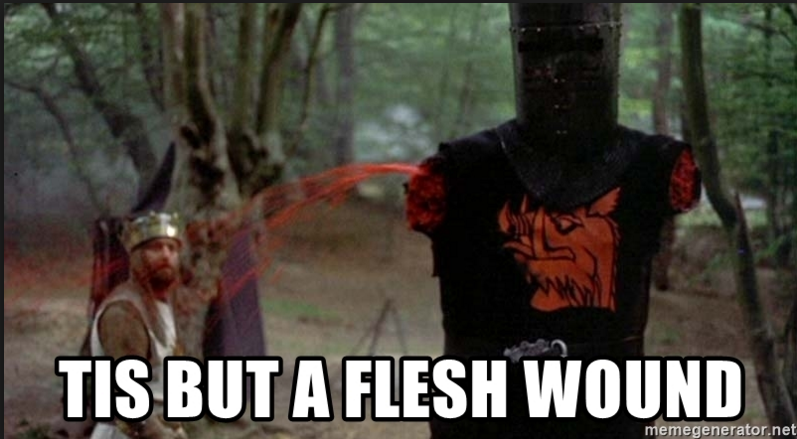
We’ve talked about The Wound in other posts. In Thelma & Louise what is the wound? A lifetime of male oppression. In Thelma’s case, her husband controls every aspect of her life.
Thus, when she finally does get on her own, she has poor judgement and is naive and that’s how she nearly ends up raped in a honky-tonk parking lot.
Louise has been a victim (shamed and alone) and doesn’t trust men or the law. Thus, her baggage is what leads her to shoot Thelma’s attacker, but then also dovetails into the really, really bad decision to run.
But if we look at all these examples from an analytical distance, these characters are just DUMB. But why aren’t they TDTL? Context. Because of plot we (the audience) are not staring down at them like specimens through a microscope. We empathize with “bad” decisions. Why? Because there’s context (their world).
Making “Stupid” Forgivable
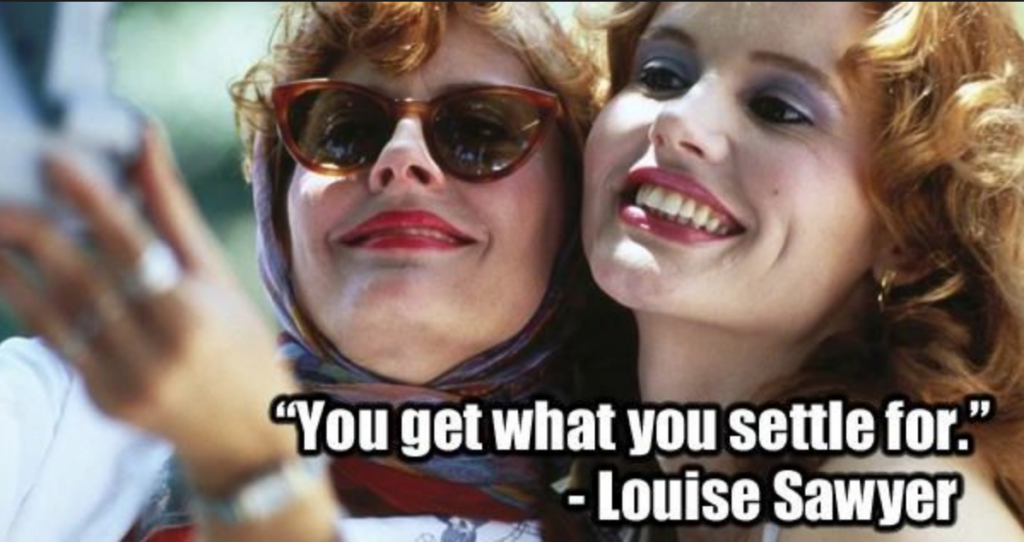
Great writing is a sort of alchemy that transforms the raw material of “stupid” into the literary gold we recognize as “damaged,” “broken,” and/or “naive”—which we have ALL been at one time or another.
This hits us in the feels. We relate, connect, and BOND with the characters because we’ve been there, done that, and have the scars to prove it.
In The Edge, “bad” decisions are forgivable because most of us are not wilderness experts. Readers can empathize with maybe doing something seriously stupid if stranded in a similar fashion.
In The Lord of the Rings we, the audience, have “been” to the Shire—and know what world created the childlike Merry and Pippin. Thus, we appreciate these characters are grossly out of their depth and give them a pass.
In Thelma & Louise we can understand how damaged people make poor decisions because, unless we’ve been living under a rock, we’ve made similar choices, and suffered consequences created from fear not reason.
What this means is that, while ALL of these characters made really wrong decisions, they are necessary and pardonable decisions that serve to drive the character arc and thus the plot’s momentum.
That is the final note on characters making bad decisions.
Plot Puppets
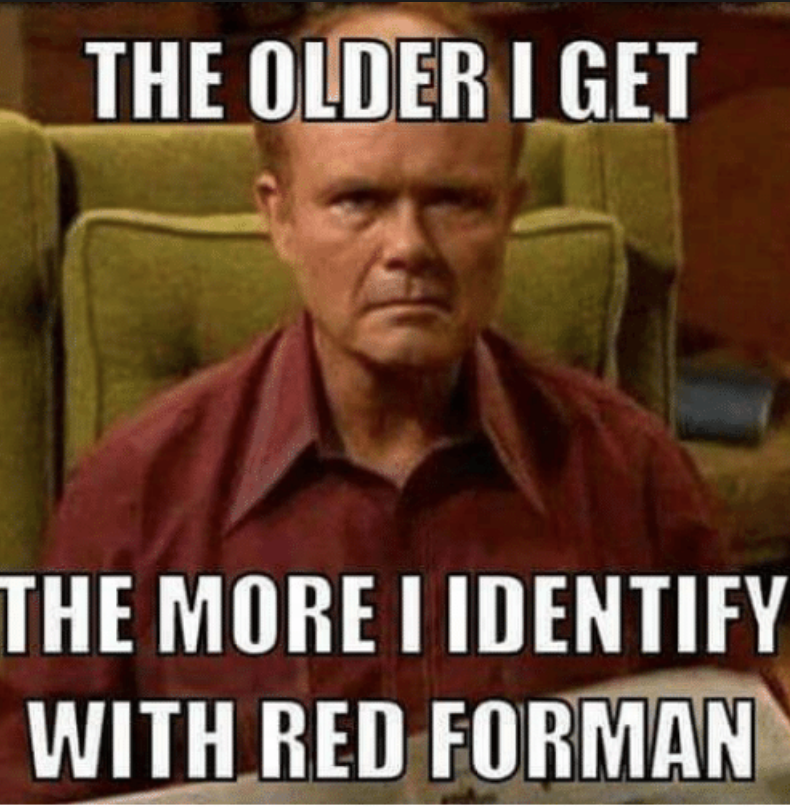
Do we have a character making a mistake, withholding vital information, acting irrationally because it is coming from a deeper place of flaws, circumstance or wounds?
Or, do we have a character playing marionette? Characters are making a mistakes because we NEED them to. The tension has fizzled, so let’s just let them do something epically stupid (and random)?
Audiences can tell the difference between mistakes that are organic and flow from deeper emotional waters versus something contrived. And we can ALL be guilty of forcing characters to make bad choices simply because we sense tension is missing. Even I have to go back and ask the tough question…WHY is this character doing this?
What are your thoughts? I love hearing from you!
What are your thoughts regarding characters making poor decisions? What are some of your favorite examples? Ever quit a book, movie, or show because you wanted everyone to DIE? What are some great examples of characters who you should hate, but you forgive? Why? Can you think of what activated empathy instead of disdain?
I would love to hear your thoughts on this.
FYI: I’m AM loading new classes. They’ll be up next post. I know I said that last time, but whatever. I lied 😛 . We had massive flooding in Texas last week and I’ve had other priorities.
And, since I’m a writer who understands writing can be a real mother…
And am also mother who can appreciate being too worn out to properly celebrate any holiday (even one dedicated to ourselves), I am extending the Mother’s Day discount until Wednesday. Use the code MOM15 for $15 off all ON DEMAND CLASSES.
This is a REAL DEAL
Because a lot of these classes went long and, once I delete from the server, they will be either priced higher when I offer them again OR they’ll be broken into two classes. This means you’ll be saving a LOT by scooping up these classes now.
You will ALSO be helping ME out more than you can imagine. Though my blog is always a labor of love, your patronage is what permits me the time write these posts. I couldn’t do it without you. So…
ON DEMAND CLASSES!!!
***NOTE: Classes are designed to play on computers (laptops or desktop) and our technology plays nicest with Chrome or Firefox. Many times the recordings are compatible with other devices like tablets or smartphones, but those devices aren’t always able to access the class because of the changes with HTML5. Use mobile devices at your own risk.
On Demand Fiction Addiction: Write the Books Readers CRAVE!
On Demand for a limited time. Watch all you like from comfort of home. $55
On Demand Story Master: From Dream to Done (A.K.A. Fast-Drafting 101)
Yes, you can write a book in two weeks. I’ve done it using what I teach in here. On Demand for a limited time. $55 for basic/$349 for GOLD
On Demand: Harnessing Our Writing Power with THE BLOG!
On Demand for a limited time. $55 Basic/$165 for GOLD

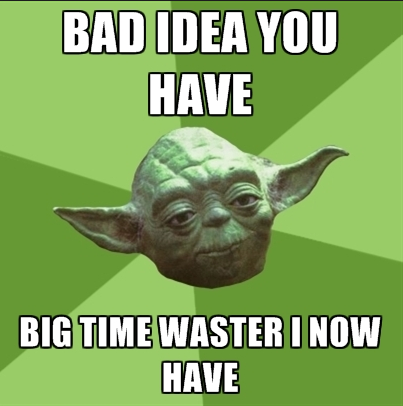

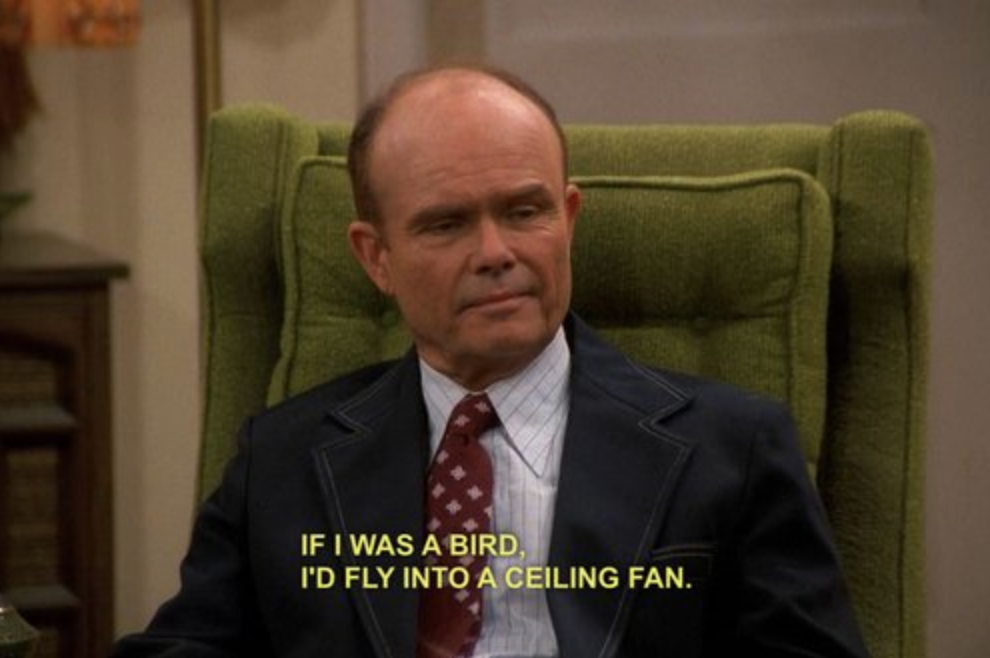







13 comments
2 pings
Skip to comment form
A lot to think about, thanks.
There’s a rule of thumb about writing a coincidence, that might apply to bad character decisions too: you can only get away with one.
That is, random luck is great for a story if there’s only one major moment of it, and the rest of the tale is what would plausibly happen around that. The same might be the key to character misjudgments: let a character make one mistake… well, let’s say one *kind* of mistake, in the same pattern and for the same reason. That bias or blind spot is what the character’s wound and the story’s theme have to justify.
And *outside* of that, a flawed but bearable character has to make sense. His other choices and values hold together, and they show a person we can believe in and a story we can get behind.
It’s when characters get stupid outside of their established flaws (or the story didn’t set up the flaw right) that we start wishing they’d get eaten.
Author
Good point. When I have had sleep I will ponder more deeply. Your theory could warrant a post on its own 😉 .
Good Grief! That’s exactly what I do – mess up characters by making them too perfect or too dumb!
Thanks for the amazing tips!
I just started a book that I couldn’t continue reading because the protagonist seemed to make so many dumb decisions, so I totally identified with your post. But I found your analysis really on point and I have to focus on this more in the development of my characters. Thank you.
This is an excellent post. One of your best.
What drives me nuts is authors who try to get a free pass for dumb decisions/behaviour by having the character recognize it’s dumb… and then carry on with it.
“Why do I keep doing this?” the character wails. “I dunno, I guess I’ll just do it some more.”
Cue loud thump as book hits wall on far side of room.
Love this, as usual. Woke my husband laughing. His retort, “I’m not a husband, I’m a plot mistake!”
I think a lot of TDTL is done in those scream-blood fests that serve as the teen slasher films. Answering the phone when you know it’s going to end bad, going outside when you know killer birds are stalking every human (and not just to poo-bomb them), that sort of thing. I gave up on those types a long time ago, lost my voice screaming “You are a moron!”
I’ve been watching the melt-down on the internet today about the Game of Thrones plotlines. It’s been interesting to see people analyze the same piece of celluloid and get different conclusions. (yes, no spoilers here, sticking to generalities). Some people just can’t accept what happened, others are all “yay, this happened!” Still others are just confused.
I’ve also noticed that the closer you are to the characters, the more willfully blind you tend to be. WE know that there is TDTL going on in that story but the author says “no, it’s just character development.” No, it’s reader/watcher abuse. Some of the folks watching the last episode are so invested in what they think they know about xxxxx character that they are absolutely refusing to see yyyyy about them and totally forget about zzzz seasons ago. So the fight is on and we have no referee to keep the screaming to a low squeal.
Is that suitably vague enough but still gets the point across?
TDTL…I’ve seen it. Not pretty.
I haven’t commented on your blog for quite some time, but this post calls me to comment. This is a great article filled with excellent tips. When I am reading, I want the characters to be real, to be the way they would be if they actually walked into my home to visit. I don’t want Mr/Mrs/Miss Perfect, either in appearance or action, but, as you have stated so well, I don’t want stupid either. I have read books with both of those kinds of characters and have tried to read until the end in the hopes of it improving as it goes along, but often just close the book and forget about it. Because of this, I have attempted to make the characters in my first novel totally believable. They are inherently good, but at times react badly when bad things happen, though in the long run they come out of the situation a better person. I like to know that when bad things happen there is still hope, whether it be in my personal life or in the characters in a book. Except, of course, the inherently bad characters which I want to see come to their deserved end. And I like surprises as long as they too are believable. Thank you for this post, Kristen.
My main photog in chap. 1 made a bad decision because of the circumstances she’d never faced in her fear she did something really stupid trying to make sure she had what she was after and by looking it over messed up bad. Well, hey it kicked off (should I say exploded up?) the story nicely. ^_~ Sadly I may need to revise chapter one yet again as I don’t think it’s going to work having the main antagonist be both a soldier and a crazy warlock/magician type lolz. Well unless I do some flippy-flop with his story. Hey, it’s fiction I can make stuff up. <3 don't you love that? (Or not, it becomes too stupid i'll have to fix it.)
The problem is people are stupid… I only need to craft a character a little bit smarter. Sadly, too many writers seek a fantastical assurance from poorly formed characters so they rely on the overly complex solution, or a naively satisfying one.
Loved this read. So happy that I don’t do any of this. Thanks for the confirmation that there’s hope for me yet. 🙂
Robert,
I typed a question into the Google, and arrived here at your excellent piece on characters…TY ?
My question was actually about the distance from usual intelligence to the far end of the Poisson curve…way out there in “Limitless” territory…. a four-digit IQ as the Protagonist states (boy, that’s f¥~n hilarious to me…) Can (or Should) these chosen ones interact w/ regular peeps ? And if yes, How…
Again, great teaching example vis-a-vis The Edge.
I completely agree with what you have written. I hope this post could reach more people as this was truly an interesting post.
[…] Read this, and get yourself some flawed characters. […]
[…] Flawed Characters vs. “Too Dumb to Live”: What Makes the Difference? […]